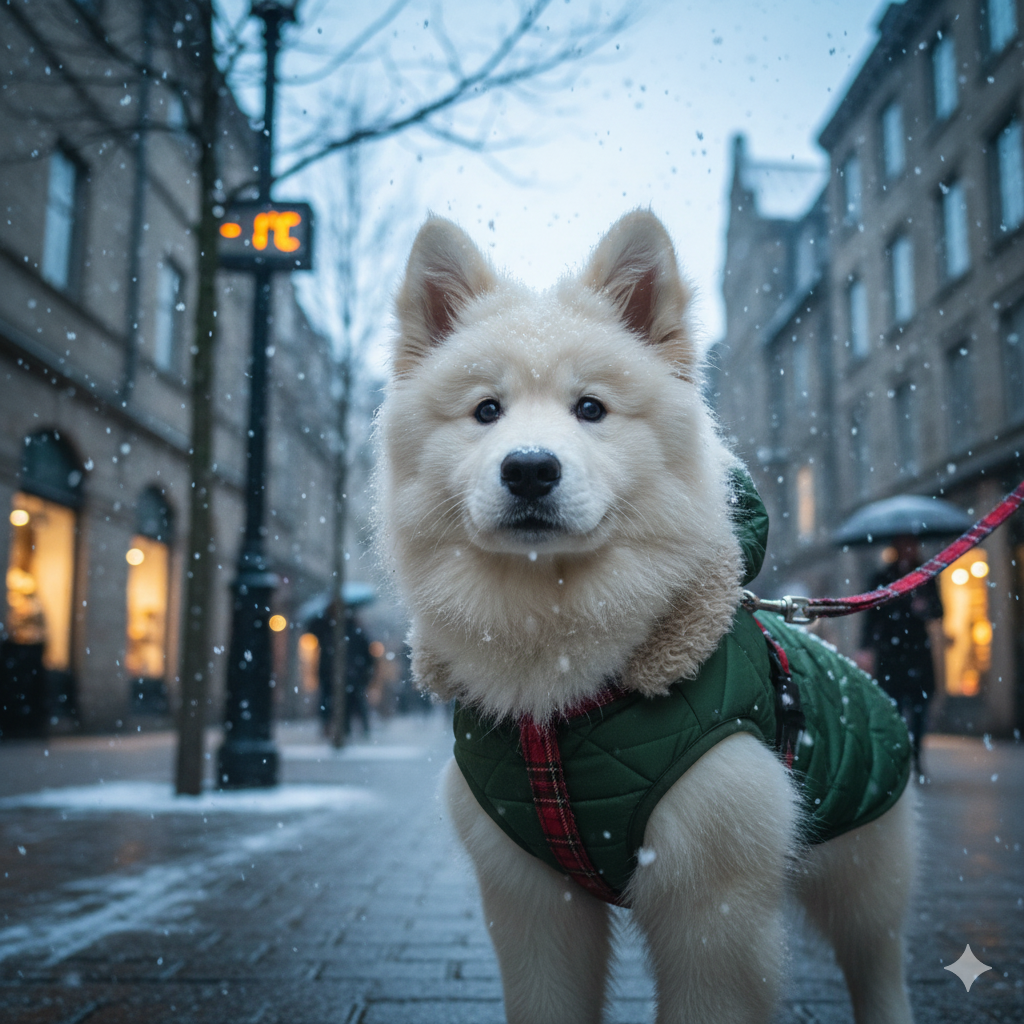Preparing Your Pet for Winter: Cold Weather Tips for Dogs, Cats & Small Pets

As the evenings draw in and the temperatures begin to drop, it’s not just humans who feel the chill — our pets do too. From frosty morning walks to chilly nights indoors, winter brings a few extra challenges for our four-legged companions.
At Highgate Veterinary Clinic, we’re here to help you keep your pet safe, warm and healthy throughout the colder months. Here’s how to prepare your dog, cat, or small furry friend for winter in the UK.
 Winter Care for Dogs
Winter Care for Dogs
 Keep Them Warm on Walks
Keep Them Warm on Walks
Short-haired and smaller breeds feel the cold more than you might think. Consider a well-fitted, waterproof dog coat — especially for older dogs or those with arthritis.
 Watch for Grit & Salt
Watch for Grit & Salt
Road grit can irritate paws and may be toxic if licked. Wipe your dog’s paws with a damp cloth after walks to remove any salt, chemicals or ice.
 Adjust Walking Routines
Adjust Walking Routines
Dark mornings and early sunsets can make walks a bit more difficult. Use reflective leads, collars or jackets to stay visible — and try to walk in well-lit areas or during daylight where possible.
 Extra Tip:
Extra Tip:
If your dog struggles with stiff joints in cold weather, please ask us about appropriate medications and joint supplements- we’re happy to advise.
 Winter Advice for Cats
Winter Advice for Cats
 Encourage Them Indoors
Encourage Them Indoors
Cats often like to roam less in winter — but if your cat insists on heading out, make sure they can come back in easily. A microchip cat flap is ideal.
 Safe Warmth Only
Safe Warmth Only
Cats love warm spots — but avoid letting them sleep too close to open fires or electric heaters. Provide warm bedding away from draughts, and check garages or sheds before shutting doors — cats sometimes sneak in for shelter.
 Check Collars
Check Collars
If your cat wears a collar, ensure it’s a quick-release design. Winter branches and fences can become slippery and more hazardous.
 Small Pets: Rabbits, Guinea Pigs & Others
Small Pets: Rabbits, Guinea Pigs & Others
 Bring Them Indoors (If You Can)
Bring Them Indoors (If You Can)
Outdoor hutches can become dangerously cold. If possible, move rabbits and guinea pigs into a sheltered garage or utility room — not inside the main house, as sudden temperature changes can be stressful.
 Extra Bedding & Insulation
Extra Bedding & Insulation
If they must stay outside, ensure the hutch is weatherproof, off the ground, and packed with extra straw or hay. Use hutch covers or tarpaulins to shield from wind and rain.
 Don’t Let Water Bottles Freeze
Don’t Let Water Bottles Freeze
Check water bottles morning and night — frozen bottles mean no access to water. Use bottle covers, and consider keeping a spare bottle inside to rotate out.
 Health Concerns to Watch for in Winter
Health Concerns to Watch for in Winter
- Arthritis symptoms worsening – If your pet is moving more stiffly or reluctant to exercise, book a check-up.
- Weight gain – Less exercise and more treats can creep up. We can help you manage a healthy weight year-round.
- Respiratory issues – Cold, damp air can worsen breathing issues in flat-faced breeds or older pets.
- Antifreeze poisoning – Extremely toxic to pets and sadly not uncommon. Keep all chemicals stored safely and clean up spills immediately.
 Book a Winter Health Check
Book a Winter Health Check
Now is a great time to book a routine health check — especially for older pets or those with known conditions. Our vets and nurses can check joints, advise on supplements, adjust flea/worming plans for the season, and help keep your pet in top shape through winter.
 Stay Cosy, Stay Safe
Stay Cosy, Stay Safe
A little extra care goes a long way in winter. Whether it’s adjusting their routine, protecting their paws, or giving them a warm place to rest, your pet will thank you for it.
For personalised advice, or to book a winter health check, get in touch with Highgate Veterinary Clinic — we’re here to help every step (and pawprint) of the way.
Tags: best vet Cambridgeshire, best vet near me, vet cambridge







